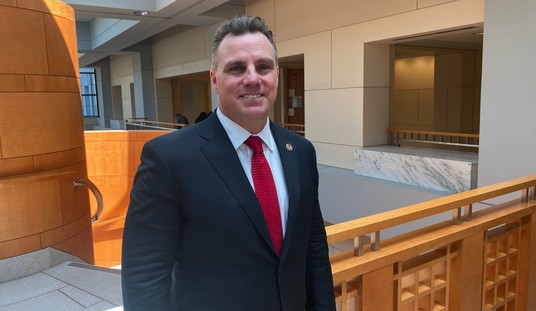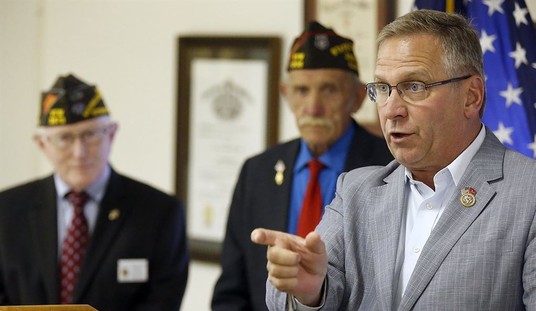As the waves crash quietly onto Omaha Beach, it’s hard to imagine that 81 years ago, those same waters were blood-red. June 6, 1944, was a day that defined the 20th century—and arguably saved Western civilization. This week, as nearly two dozen American World War II veterans—most over 100 years old—returned to Normandy to commemorate D-Day, the world paused to remember their courage. Or at least, it should have.
The First Into France – Meet the Elite “Pathfinders” of the Normandy Invasion
— Military History Now (@MilHistNow) June 5, 2025
“Nearly 300 took part in the pre-invasion.”https://t.co/miBXwkoXfr #DDay81 pic.twitter.com/3i35pZuKIU
But in a world obsessed with TikTok trends and manufactured outrage, it’s worth asking: Are we honoring the right people anymore?
Eighty-one years ago, Supreme Allied Commander General Dwight D. Eisenhower had a choice to make—one that would change the course of history. The weather over the English Channel was volatile. Rain, wind, and heavy cloud cover threatened the entire operation. The invasion had already been delayed once.
General Eisenhower addressing troops the day before the D-Day landing, June 5, 1944. “The eyes of the world are upon you.” pic.twitter.com/RDQqpQlTsz
— History Calendar (@historycalendar) June 5, 2025
RELATED: Essex Files: Honoring a Hero on Memorial Day
The decision to go on June 6 wasn’t just tactical—it was moral. Eisenhower had 156,000 Allied troops staged and ready. A bad call could mean disaster, not just for the operation, but for the free world. But if they waited too long, the Germans would fortify the beaches even more. In the early morning hours of June 5, Eisenhower made the call: “OK, we’ll go.” And they did.
With the wounds of Afghanistan still fresh, and D-Day upon us again, I want to highlight something rare in today’s leadership culture: Accountability.
— InfantryDort (@infantrydort) June 5, 2025
June 5th, 1944. On the eve of the largest amphibious invasion in history, General Eisenhower sat alone, chain smoking… pic.twitter.com/dC29pMTTyF
American, British, and Canadian forces stormed five beaches. At Omaha, where many of the American troops landed, things went south fast. Machine-gun fire mowed down wave after wave. Higgins boats dropped their ramps, and our boys ran straight into hell.
As he landed with an early wave of American troops on Omaha Beach on D-Day, photojournalist Robert Capa began snapping pictures on his 35mm cameras. Within hours, he had taken some of the most famous combat photographs of World War II. Read more here: https://t.co/H98sCRiEgK pic.twitter.com/j2KbuPeJH5
— National WWII Museum (@WWIImuseum) June 4, 2025
But they didn’t turn back. They pushed forward, inch by bloody inch, until the beaches were taken. That day, thousands of American boys gave their lives. And the Nazis began their long retreat.
"I am quite positive we must give the order," Eisenhower says. "I don't like it but there it is. I don't see how we can do anything else." D Day is on. It's 9.45pm in England on June 4th 1944.
— alex kershaw (@kershaw_alex) June 4, 2025
This week, those same beaches saw a different kind of soldier. Men in wheelchairs and walkers returned to the sand they once conquered. Most had medals pinned to their jackets, but their real honor is tattooed in the history books and in the lives they helped preserve.
They are the last of the Greatest Generation. There were 16 million Americans who served in World War II. Today, fewer than 120,000 remain. Within five years, that number will likely be near zero. When that happens, we’ll be left with only the stories. And stories fade fast in a culture that can’t remember what it had for dinner two nights ago.
World War II veteran Fred Nungesser salutes during a ceremony honoring the 81st anniversary of the D-Day landing.
— Peace Through Strength 🇺🇸 (@TroopsInFocus) June 5, 2025
📍Normandy, France
🗓️ June 1, 2025
📸 @USArmy Staff Sgt. Reece Heck pic.twitter.com/evBDcaH4HT
The sacrifice of those men—those teenagers who stormed the beaches—is why we have the freedom to debate politics, to worship freely, to protest, to vote, and yes, even to scroll endlessly on our phones. But freedom isn’t inherited like a trust fund. It’s earned. And it must be remembered—or we will lose it.
We’re at a point in this country where far too many people take liberty for granted. They confuse comfort with courage. They think history is just a collection of dusty dates. They’re wrong.
General Eisenhower once said, “Humility must always be the portion of any man who receives acclaim earned in the blood of his followers and the sacrifices of his friends.” That humility is missing from our culture today. We need to bring it back.
When those centenarian veterans made their final journey to Omaha Beach this week, they didn’t go for glory. They went for memory. For legacy. For honor. The question is: Will we do the same when they’re gone? Because when the last D-Day veteran takes his final breath, it won’t just be the end of a generation—it’ll be the final warning. Will we be worthy of what they fought for?
If we’re not careful, we’ll be the generation that forgets what the Greatest Generation gave us. And if that happens, we’ll lose more than just a memory—we’ll lose the soul of America. And in this day and age, we need to stand together.
Editor’s Note: Every single day, here at RedState, we will stand up and FIGHT, FIGHT, FIGHT against the radical left and deliver the conservative reporting our readers deserve.
Help us continue to tell the truth about the Trump administration and its major wins. Join RedState VIP and use promo code FIGHT to get 60% off your membership.














Join the conversation as a VIP Member